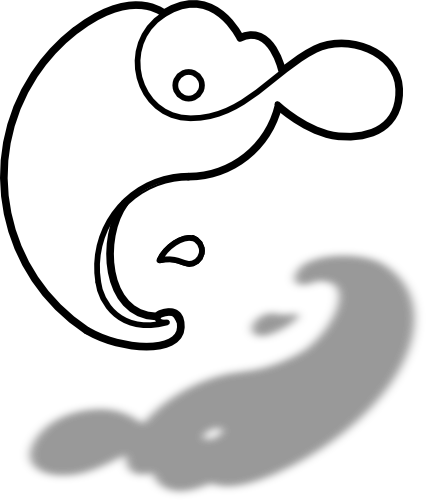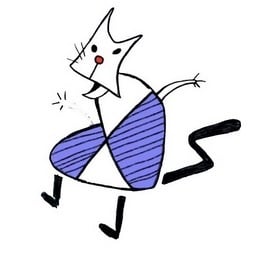They don’t have a brain really and kinda just float there. Do they even feel pain?
After having kept jellyfish as pets (Atlantic bay nettles), I wouldn’t really consider them to be vegetarian nor vegan. While similar to plants, seemed to have a greater sense of environmental awareness than my plants. Mine could sense light, have “off days”, and interact with their environment. It’s probably true that there’s not much going on there due to the small amount of nerves that control everything, but even when mine would accidentally get caught on tank cleaning tools or get bumped around they’d react in a protective way and to me it’s just similar enough to animalistic behavior that I’d not feel comfortable consuming them if I were vegan.
So is this theory of veganism to not cause pain to an animal? If so what about ethically sourced meat. Like bullet to the head/decapitation. Most of those creatures feel nothing, they just end.
Or is it to not eat anything that comes from the an organism from the Animalia kingdom because harming animals is immoral?
After proofreading, these sound more aggressive/argumentative than i had intended but they get the point across.
Veganism means to reduce the suffering and exploitation of animals as much as practically possible.
There is nothing ethical about killing a living being that doesn’t want to die.
So is this theory of veganism to not cause pain to an animal? If so what about ethically sourced meat. Like bullet to the head/decapitation. Most of those creatures feel nothing, they just end.
lots (propably most) animals used for farming meat are in pain during their lives.
That’s longer than the time they’re dying in any case.I understand that completely, death isn’t where the suffering usually occurs. This brings me to another question that i proposed in response to a different comment.
I had family that raised a cow to eventually become meat. It was named Tasty and lived up to its namesake. Tasty was treated well and killed quickly and cleanly. Is that, like, bad?
At this time it is impossible to know if they feel pain. They’re a living creature.
Plants are also living creatures, but don’t tell the Vegans.
They told me Lemmy would be more leftist, why am I still seeing 0 IQ vegan jokes
Carnists are grappling with cognitive dissonance.
How did you find this year old post lol
Thanks to the advanced Voyager search allowing me to find the key word vegan to do some online activism.
That’s lemmy.ml. I think most of us just want this to be a place with less politics and extremism on either side because it’s exhausting.
What’s more extreme: not wanting to harm and exploit animals or killing and exploiting them to use them as products?
I think it’s pretty clear.
The former, by definition, because the vast majority of society does the latter. Extremists always try to reframe themselves as the moderate ones and say mainstream society are the extremists instead, so I’m not surprised you’re saying this.
Using violence towards the animals is extremist.
Just because it’s always said doesn’t mean it isn’t sometimes true. Can’t you think of examples of views that were fringe but became the moral baseline?
Can’t you think of examples of views that were fringe but became the moral baseline?
Yes, I can, but I can’t think of any that were extreme despite being the most widely held views in a given society, because that’s an oxymoron. Once something becomes a widely held view it is no longer extreme.
Jellyfish eat animals and animal byproducts, so no, they are not vegan.
Jokes aside, often vegans follow dietary restrictions for reasons other than an ethical or moral belief against causing pain. Many vegans don’t even eat honey, so I imagine jellyfish is pretty safely in non-vegan territory.
Here’s a good video on why vegans don’t eat honey. Beekeeping is really just another form of factory farming.
Can’t agree fully.
My mother has a hive in the garden. The bees pollinate our garden, live lives as nice as bee’s lives can be and, at the end of the year, we take some of their honey and replace it with sugar, which the bees don’t care about.
It’s a win-win, nobody is hurt, nobody is taken advatage of.
I thought your first sentence was serious at first, since it genuinely makes sense to me. If growing a jellyfish causes animal suffering, I can see why a vegan may reject to eat it for ethical reasons.
Vegan is a very wide array of things ranging to not eating red meat all the way down to not doing anything that could hurt a plant (only scavengering fallen fruit).
https://theminimalistvegan.com/types-of-vegans-and-vegetarians/
This is not at all what Veganism is.
Veganism is LITERALLY an ethical stance regarding exploiting/harming/killing non-human animals.
Finding a random blog online that states otherwise means nothing. Anyone who ate a salad last Tuesday these days thinks they can simply decide what Veganism is.
THIS is the actual definition of Veganism, directly from the people who coined the term:
“Veganism is a philosophy and way of living which seeks to exclude—as far as is possible and practicable—all forms of exploitation of, and cruelty to, animals for food, clothing or any other purpose; and by extension, promotes the development and use of animal-free alternatives for the benefit of animals, humans and the environment. In dietary terms it denotes the practice of dispensing with all products derived wholly or partly from animals."
THIS is the actual definition of Veganism, directly from the people who coined the term:
That definition is from 1988, so it’s questionable whether it came “directly from the people who coined the term” in 1944. Here is a re-publication of the 1951 Leslie Cross definition:
“The object of the Society shall be to end the exploitation of animals by man” and “The word veganism shall mean the doctrine that man should live without exploiting animals.”
Allegedly someone read The World Peace Diet (by Will Tuttle) to Donald Watson on his deathbed, and Donald Watson said that the book encompassed everything that he intended when he founded the Vegan Society. Make of that what you will.
They’re animals, so no.
No Brain? For Jellyfish, No Problem
“I think sometimes people use its lack of a brain to treat a jellyfish in ways we wouldn’t treat another animal,” Helm says. “There are robots in South Korea that drag around the bay and suck in jellyfish and shred them alive. I’m a biologist and sometimes sacrifice animals, but I try to be humane about it. We don’t know what they are feeling, but they certainly have aversion to things that cause them harm; try to snip a tentacle and they will swim away very vigorously. Sure, they don’t have brains, but I don’t think that is an excuse to put them through a blender.”
No.
A lot of Jelly fish are immortal? Just leave a few cells and wait for it to come back to life. Death-free food for the win
I mean, milk could also easily be death-free, but it’s not vegan. It’s also not suffering-free. So this suggestion kind of misses the point.
It depends on the definition of Veganism.
There’s is a popular school of thought that the diet‘s sole purpose to reduce suffering. If a living thing has no central nervous system (or brain), it has no thoughts and cannot experience pain or harm. It’s not much different than a fruit or vegetable. I know vegans that make exceptions for oysters - for example.
Others schools of thought are about avoiding animal products altogether, it doesn’t matter if it suffers or not - there’s no way to know. Therefore, it’s immoral to eat them if you can knowingly choose an alternative.
Veganism is not only a diet. It’s an ethical stance and lifestyle.
Edit: clarifications
There’s is a popular school of thought that the diet‘s sole purpose to reduce suffering. If a living thing has no central nervous system (or brain), it has no thoughts and cannot experience pain or harm.
What about instant death? Like a farmer putting down a well-treated cow with a bullet to the head. In this scenario, the cow never suffered. In all likelihood it probably never even had much mental distress, let alone fear of death. Would that meat be ethical/vegan friendly?
Suffering is a broad definition. One would argue that prematurely ending sentient life without their consent would fit that definition.
Often, it’s not suffering on an individual level - but the suffering of a species. Cows live in bondage and we benefit from their labor and chose to end their lives for our benefit.
Sometimes Vegans extend this philosophy to pets and service animals - even if they’re treated exceptionally well.
The point is that Veganism is less monolithic than folks tend to believe. A person’s diet can be deeply personal and it’s up to them to draw lines.
I’m a meat eater. I don’t have an issue eating cows. I don’t have an issue eating rabbits, which I know people also keep as pets. I don’t have an issue eating lobster - whereas they’re boiled alive. But I know I couldn’t eat a cat or dog. Realistically, I have trouble with veal. So ya know, where I draw the line might not be the same for other people. My diet is informed by my culture, health, experiences and personal feelings - as is everyone’s.












